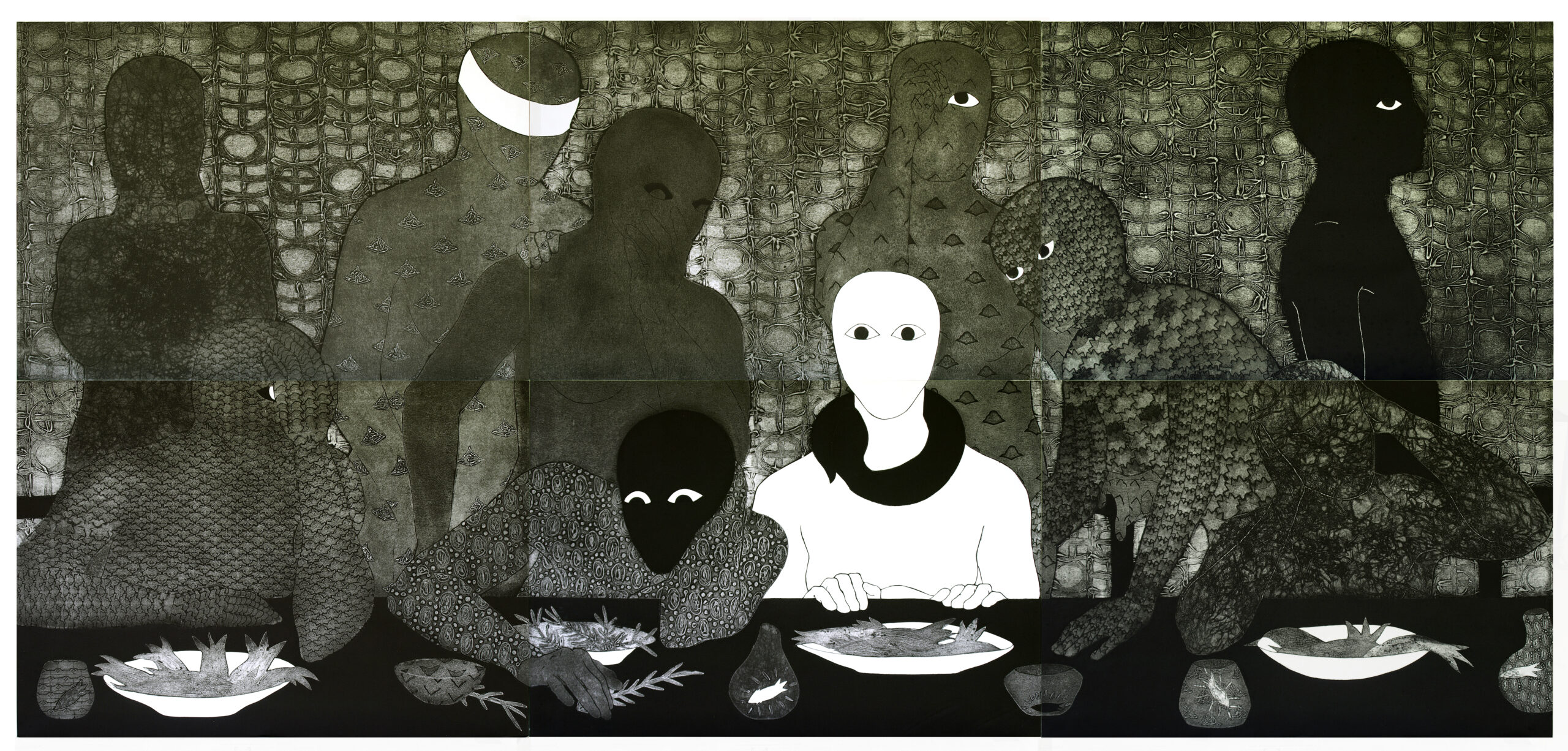“Nkame,” the Belkis Ayón retrospective at the Fowler Museum, comprised of 43 collography prints, is about the Abakuá, an all-male secret society in Havana, formed by a group of slaves from southern Nigeria. However, there is another layer in Ayón’s body of work.
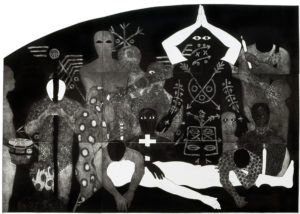
Belkis Ayón, Nlloro (Weeping), 1991. Collograph. Collection of the Belkis Ayón Estate.
The artist was born about a decade before the Cuban Constitution formalized equality for women, guaranteeing their full participation in the economy. However, the reality in Cuba didn’t live up to this ideal. Even though Cuban women found work in all fields, and laws required equal pay for equal work; a subsequent research study found that the roles of men and women were not divided fairly and equally.
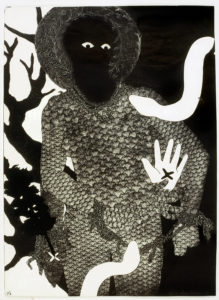
Belkis Ayón, La sentencia (The Sentence), 1993. Collograph. Collection of the Belkis Ayón Estate.
Of course, this is also the reality for women today within and outside the US. Yet, this has been a problem, particularly in Cuba, because of its prevailing machismo culture and a lack of access to basic, everyday items. Ongoing sexual harassment and violence against women in Cuba continues to be a problem.
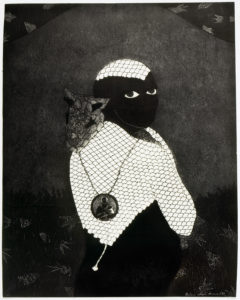
Belkis Ayón, Sin título (Sikán con chivo) (Untitled (Sikán with Goat)), 1993. Collograph. Collection of the
Belkis Ayón Estate.
Ayón created these works toward the end of the Cold War, when Cuba’s political system and the country’s machismo culture began to merge. Those incidents and issues echo in Ayón’s work. There are the major overlapping themes, such as gender inequality, the revelation of a secret, the risk and danger faced by disloyalty towards a strict authority or system, the tension between two opposing ideologies and their merging.
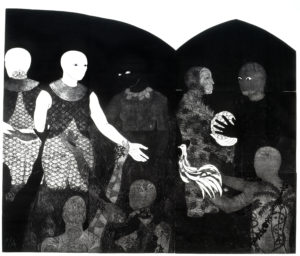
Belkis Ayón, Perfidia (Perfidy), 1998. Collograph. Collection of the Belkis Ayón Estate.
In the image La cena (The Supper), 1991, which suggests a recreation of the Last Supper by Leonardo da Vinci, it is not Jesus sitting in the middle at the table, but Sikán, a princess, and traitress in the Abakuá myth. Other than in the traditional story, here she survives, but the surrounding men won’t see her. One is blindfolded. Two are portrayed eyeless. Others are looking away. And Tanze, a sacred fish, and symbol for secrecy, is placed openly on the table. In fact, the entire aesthetic of the image looks like a collage made of fish scales. As with most of Ayón’s works, this is made of black, white and shades of gray, providing tension, polarity and the blending of opposites. Perhaps what we are looking at is not just another stunning print, but one containing a spy code.
Belkis Ayón: “Nkame: A Retrospective of Cuban Printmaker Belkis Ayón”, October 2, 2016 – February 12, 2017, at the Fowler Museum, 308 Charles E Young Dr N., Los Angeles, CA 90024, www.fowler.ucla.edu

